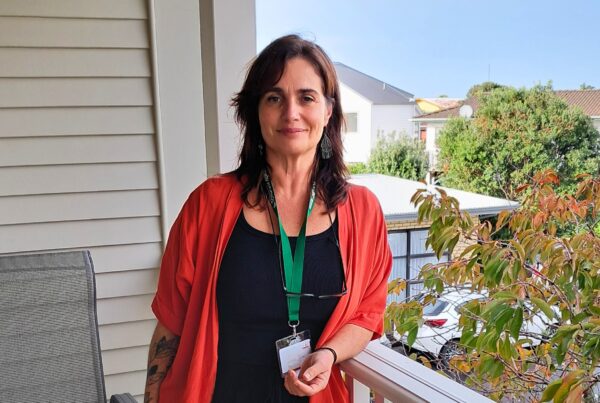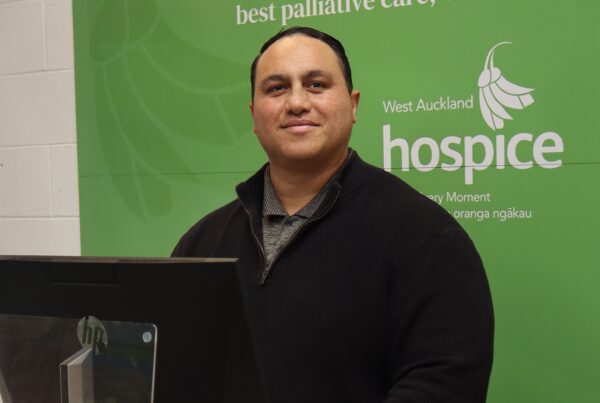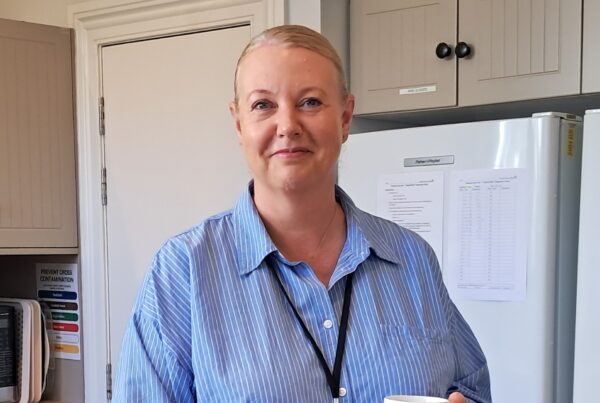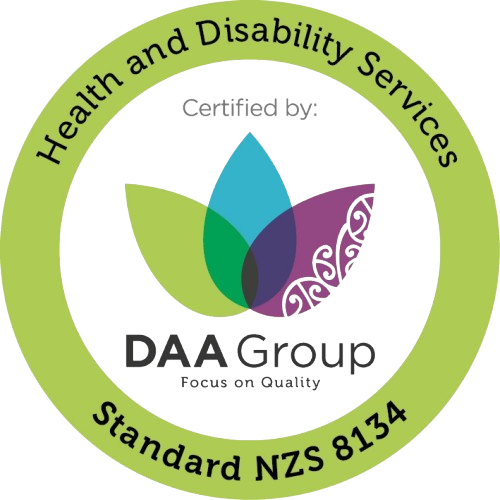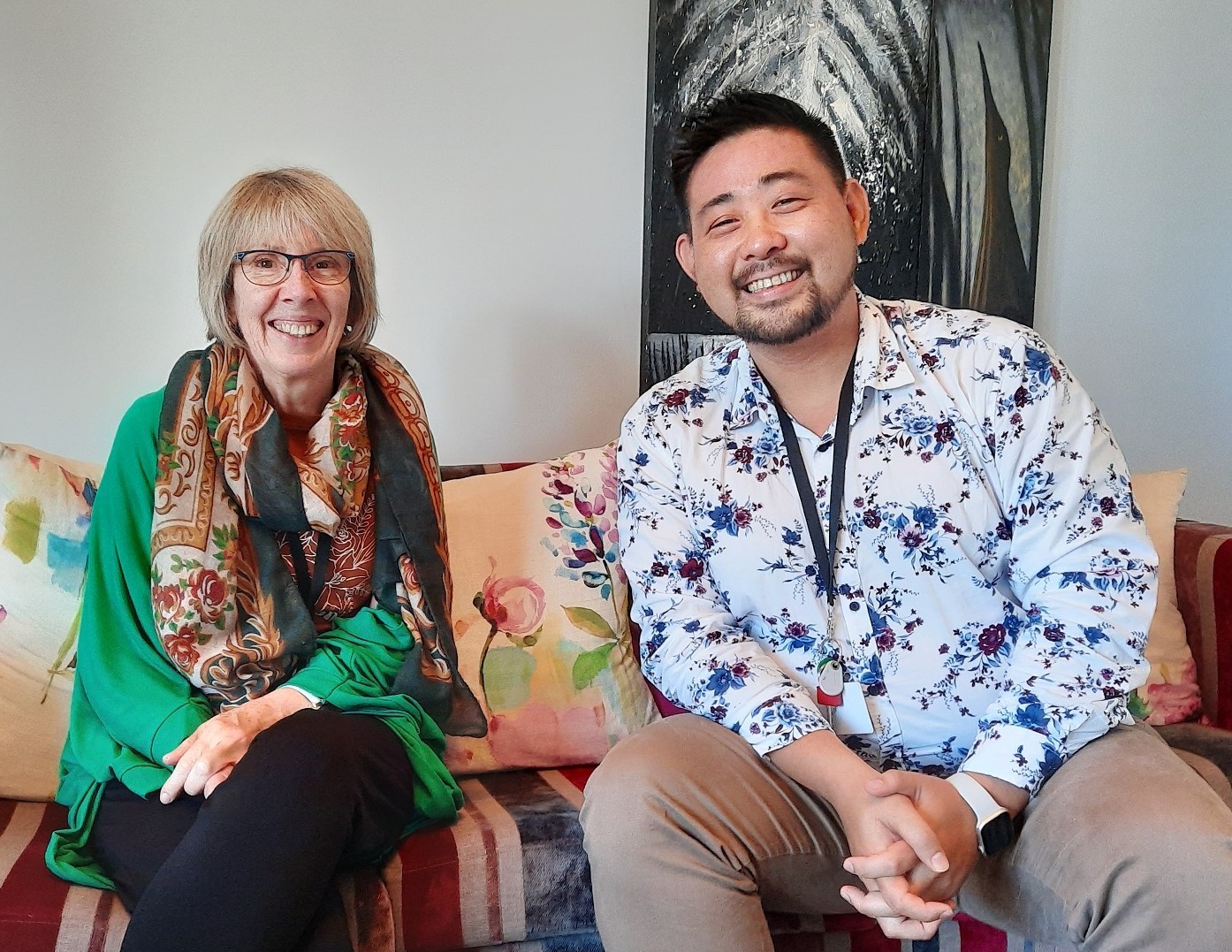
Social workers Patricia Gosper and Naoki Ikeda are an integral part of Hospice West Auckland’s social support team.
With no two days – or even two hours! – the same, these busy and rewarding roles aim to support with life challenges and practical issues that patients, carers and whanāu are facing. “Every day I wake up and I have no idea how this day is going to unfold,” explains Patricia.
In the field of specialist palliative care, social workers provide essential links and tools to meet the unique practical challenges and needs of their patients and whanāu. The process usually begins with a face-to-face meeting, where Patricia or Naoki visit together with the medical team and begin to develop a relationship with the patient and their loved ones. “Getting to know them and their support network is essential,” says Patricia. “It allows us to have open, honest and safe conversations about all of their concerns so we can identify ways we can help.” And there are a huge number of ways they provide support. For example, financial issues are common when someone is ill and becomes unable to work, threatening the ability to pay the rent, mortgage, food or utility bills. So our social workers explore the available options which could include accessing KiwiSaver, WINZ grants or other government assistance. Food assistance could be in the form of organising food bank parcels or food grants from WINZ.
Often patients and carers simply don’t know what assistance is available, or how to access it. That’s where Patricia and Naoki come in: educating them on their options, providing resources, making introductions, booking appointments, coordinating with Te Whatu Ora, phoning banks, organising food parcels, liaising with government departments or residential care facilities – any solutions they can provide to ease those stresses and burdens.
Advance care planning is a big part of the social worker role. This involves working closely with patients to understand what matters to them, and putting plans in place to take care of their specific needs and wants. “We have the skills to say: we have a pathway here,” explains Patricia, “and one of the important things is reminding people that, while time is of the essence, we want to maximise your living.” It may include ensuring wills or other legal documents are up-to-date, putting Enduring Power of Attorney in place, making funeral plans, and deciding on their care or treatment preferences. Advance care planning can provide great comfort and peace of mind in knowing that everyone understands what matters to you and that your care plans are in place. It also helps you to make the most of your time doing those things that give your life the greatest meaning and enjoyment.
Now in her 13th year with Hospice, Patricia is one of the longest-standing staff members, while Naoki joined the team late last year. “The good thing about Hospice West Auckland is that we always think in terms of the interdisciplinary team. Everybody has different strengths to offer and it’s very collaborative. Working for Hospice is so valuable to the lives that we touch,” says Patricia. Naoki agrees: “It’s a very holistic approach and that’s the beauty of working for Hospice. We work together from different approaches to give the best possible care to patients.”
Both have extensive training and experience in the social work field, and say that continuous learning and education is a regular part of the job. That morning, for example, the pair attended a COPD (Chronic Obstructive Pulmonary Disease) clinical toolbox, and agree that they never stop learning new things.
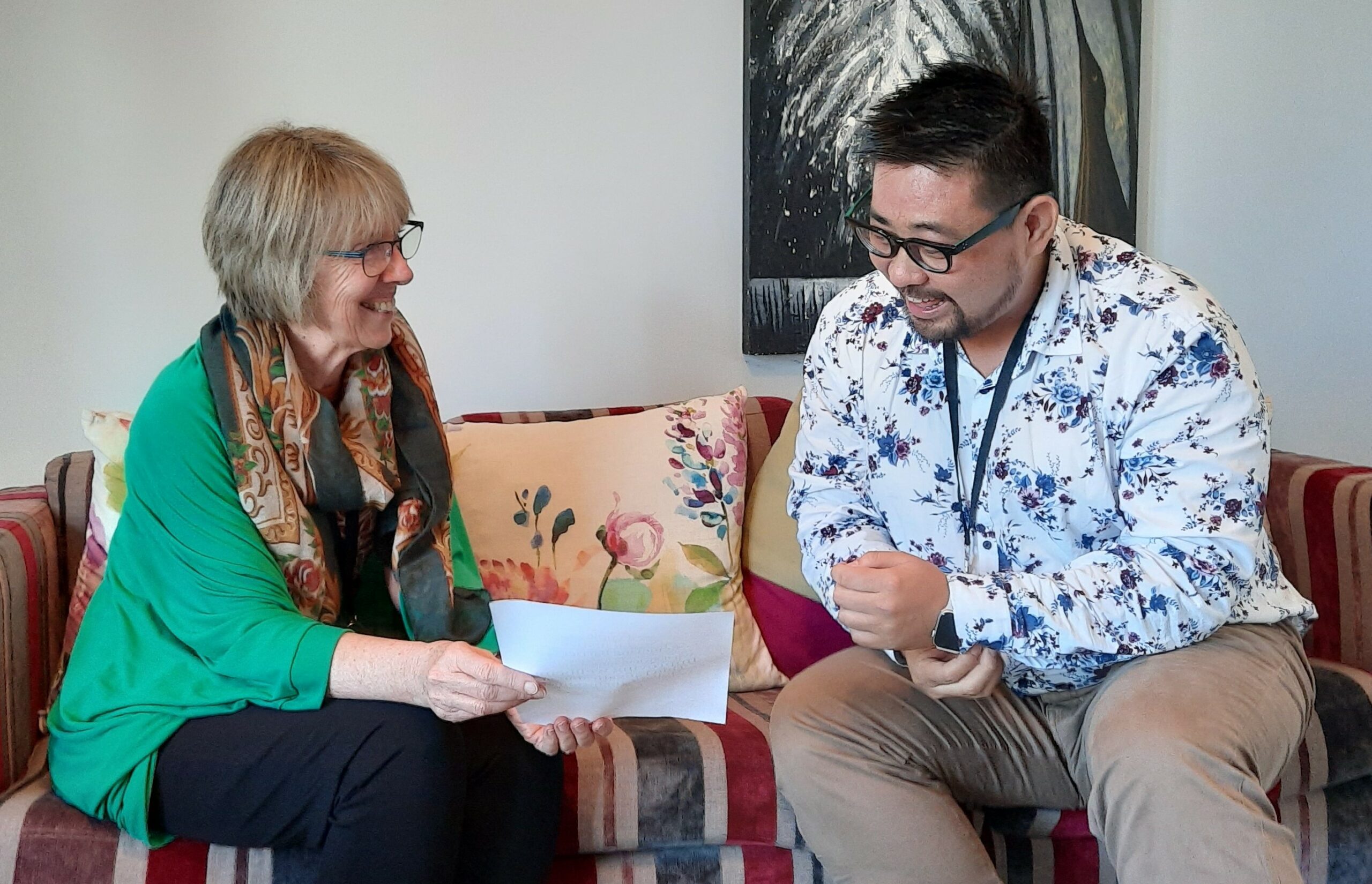
As the population of West Auckland continues to grow, so does the complexity of the role of the specialist palliative care social worker. Naoki says that, in particular, demand for mental health support has increased substantially. He believes that assisting patients and whanau to participate in decisions about their care, and giving them confidence in their advance care plan, are important ways to help reduce concerns in regard to their daily life.
Patricia and Naoki believe that social work in specialist palliative care is incredibly enriching. “We’ve stepped over a patient’s doorstep and been respectful of them and their whanau, and we’ve said: we can help,” says Patricia. “It’s those times where you feel so fortunate to help people realise they can get through this difficult time.” Naoki agrees wholeheartedly: “It’s not easy to let people into your lives and I’m so appreciative they do and that we can help them – and show them the respect they deserve.”

